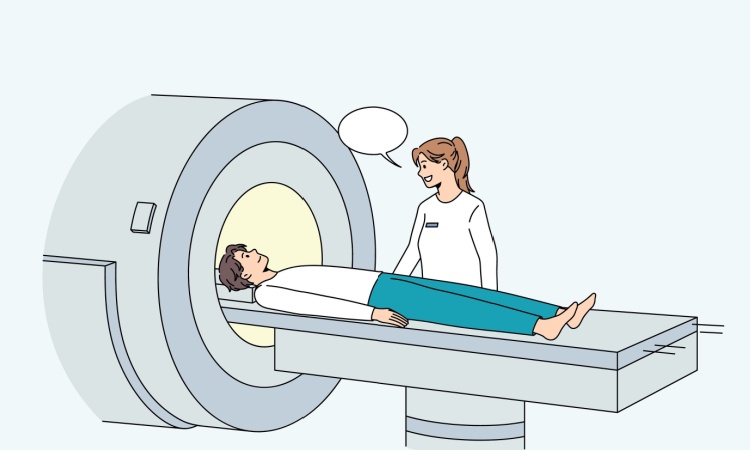Side Effects of Radiation Therapy
Side Effects of Radiation Therapy

Radiation therapy is a type of cancer treatment that uses high-energy radiation, such as X-rays, gamma rays, or proton beams, to damage cancer cells. Radiation therapy may be used alone or along with other treatments, like chemotherapy or surgery. Although it is an effective treatment, it can cause side effects, which usually start within the first few weeks of treatment.
Side Effects of Radiation Therapy
Side effects of radiation therapy can vary from person to person. Some of the common ones are:
1. Hair Loss:
Radiation therapy causes hair loss, but only at the treatment site. Your hair usually begins to fall 2-3 weeks after the treatment begins and should grow back a few weeks after the treatment ends. However, the texture or colour of the hair can be slightly different from what it was earlier. In cases where the patient requires a high dose of radiation therapy, hair loss can be permanent.
2. Fatigue:
Most people undergoing radiation therapy feel fatigued. After the therapy session, you must take plenty of rest, avoid strenuous activities, and do light exercises.
3. Skin Problems:
Radiation therapy can make your skin darker or lighter than your normal skin tone. The skin can also get flaky, itchy, dry, or even peel off. Avoid wearing tight-fitting clothes, wash your skin every day with soap, pat dry the skin instead of rubbing it, use sunscreen when going out, do not put heat or cold packs on the treated area, apply moisturiser, and avoid using products that irritate your skin. Skin problems gradually get better after the treatment ends.
4. Loss of appetite:
During radiation therapy, many people experience a loss of taste, which can lead to a lack of appetite and eventually cause weight loss. To manage this, you should eat small, frequent meals rather than having large meals at a time.
5. Diarrhoea:
Diarrhoea is a common side effect when the abdomen or pelvic region is treated with radiation therapy. The symptoms should improve within a few weeks after treatment ends. However, if it gets worse, you must consult your doctor.
6. Stiff joints and muscles:
Radiation therapy can make the joints and muscles in the area being treated swollen, stiff, and uncomfortable. Regular exercises and stretches can help you feel better.
Conclusion
The type and severity of radiation therapy side effects can vary depending on the individual response, the prescribed dose, and the frequency of treatment. While some side effects with medications subside within a few months, some may become permanent. If they worsen and interfere with daily life, your doctor may change the treatment plan.
As cancer treatment costs can run into several lakhs, it is vital to have a mediclaim policy along with a critical illness cover for financial protection against the high expenses. Critical illness insurance is specifically meant for ailments like cancer, stroke, kidney disease, etc. If you get diagnosed with a critical ailment, the insurer will pay a lump sum amount, irrespective of the costs incurred. The compensation can be used for medical as well as non-medical purposes, such as paying off debts, children’s education, and compensating lost income. Critical illness insurance can be purchased as an add-on cover or as a standalone policy.
Disclaimer: The above information is for illustrative purposes only. For more details, please refer to the policy wordings and prospectus before concluding the sales.
RELATED ARTICLES
Radiation Therapy Cost: Pre & Post Treatment Breakdown
Lung Cancer Treatment Cost in India
All You Need to Know About Skin Cancer
How To Protect Yourself From Cancer ?










 Health Insurance
Health Insurance  Travel Insurance
Travel Insurance  Car Insurance
Car Insurance  Cyber Insurance
Cyber Insurance  Critical Illness Insurance
Critical Illness Insurance
 Pet Insurance
Pet Insurance
 Bike/Two Wheeler Insurance
Bike/Two Wheeler Insurance  Home Insurance
Home Insurance  Third Party Vehicle Ins.
Third Party Vehicle Ins.  Tractor Insurance
Tractor Insurance  Goods Carrying Vehicle Ins.
Goods Carrying Vehicle Ins.  Passenger Carrying Vehicle Ins.
Passenger Carrying Vehicle Ins.  Compulsory Personal Accident Insurance
Compulsory Personal Accident Insurance  Travel Insurance
Travel Insurance  Rural
Rural 











